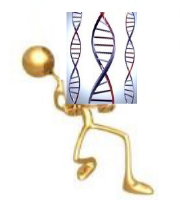
Ion channels are the molecular units of electrical signaling in cells. They are proteins that regulate the movement of ions—such as sodium, calcium, and potassium—into and out of cells. They are responsible for the conversion of external sensory signals to the electrical language of the nervous system and for the integration of these signals to generate appropriate behavior. Ion channels are also important for the generation and regulation of the heartbeat, for contraction of muscles, and for the release of hormones in the bloodstream. The body contains a large variety of ion channel types, specialized to select for certain species of ions and to selectively open and close in response to a number of different stimuli, such as the binding of a neurotransmitter molecule or a change in the voltage that exists across a cell's membrane.
Work in the laboratory is towards understanding the structural and functional mechanisms of ASIC channel, gap junction channel and P2X7 receptors and role of these ion channels in electrical signaling and physiology. This research relates to transduction, processing, and transmission of information in the nervous and other physiological systems and to basic mechanisms of coupled conformational changes in signaling proteins. We use a combination of molecular biology, electrophysiology, biophysics, cell biology,live cell imaging and computational biology.